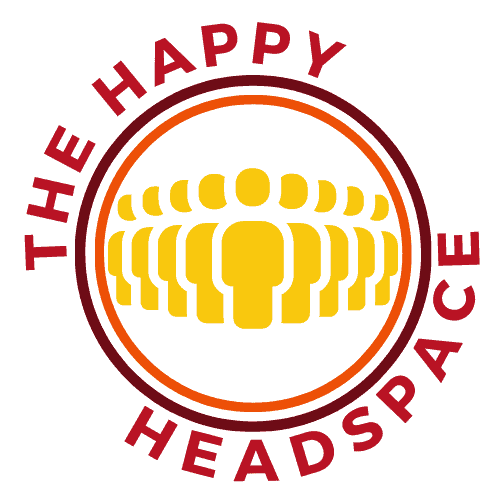One of the first things most newly discovered systems do is seek out a therapist. And rightfully so! The right therapist can dramatically speed up the healing process. The wrong therapist, however, can cause all kinds of damage and can ultimately make it difficult for the system to ever trust another therapist. Not good! So what kind of things should a system be looking out for when they’re finding a new therapist? Let’s jump right in!
Table of Contents
WARNING AND DISCLAIMER
Because of the nature of D.I.D., it’s possible that something in this article could be triggering to your system. Please use caution and your best judgement when reading this article. Safety first!
Disclaimer: We are not doctors, therapists, or mental health professionals. We’re just a bunch of alters that are speaking from personal experience to help other systems live their best lives.
Anyone (Therapist Or Not)
Some systems decide that they don’t want to work with a therapist. These systems sometimes opt to work with a religious councilor, a life coach, or someone else that is able to meet their needs. No matter who you work with for your D.I.D. healing, it’s important to avoid these red flags:
Don’t Believe in D.I.D.
It’s startling how many trained and certified therapists haven’t heard of D.I.D. or just plain don’t believe it exists. If you system is working with someone for your D.I.D. related issues (especially a therapist) and they don’t believe in D.I.D., run! This is NOT the right professional for you.
Those with D.I.D. have enough issues with coming to term with their diagnoses. They do not help from an individual that is completely uneducated or ignorant about their disorder. Working intimately with an individual that does not believe in your diagnosis will leave lasting damage so do whatever you can to end that professional relationship ASAP.
**Pro tip: All of the other red flags in this article are important but this is the most important red flag to watch out for! We can not emphasize this enough: if a professional your system is trusting with your D.I.D. healing process does not believe in D.I.D., get out!
Feel Untrustworthy
You know that feeling you get when you’re talking to someone and you just can’t help but think “They’re totally lying to my face right now.”? If a professional gives you the impression that they’re lying or manipulating you, watch out.
Trust is absolutely critical when it comes to recovering from D.I.D. related issues. If your system can’t trust the professional you’re paying to help you heal, that’s not good. Many systems struggle with thinking they’re making things up, being paranoid, or just all around discounting their own feelings. Do not fall into that trap! If you get an untrustworthy vibe, honor your feelings and GTFO.
Give An Uncomfortable Vibe
Similar to feeling untrustworthy, if ANYONE in your system feels uncomfortable, that’s not a good sign. Now, there is a big difference between “change is hard and I’m uncomfortable” and “this person reminds me of my abuser/I don’t trust the way they look at me/I sense that they’re a scam.”
Healing from trauma is fundamentally uncomfortable so it’s understandable to experience some level of discomfort while working on healing your system. BUT, and this is a big but, if ANY of your alters feel uncomfortable with the professional themselves, that’s a big warning flag you should listen to.
For Any Therapist
It’s not unusual for systems to have more than one therapist. When this happens, they often have one therapist that specifically handles their trauma and D.I.D. and another therapist that handles their D.I.D. related issues. Things like eating disorders, family drama, marriage, parenting, and boundary setting. The following are red flags for any therapist working with your system to have:
They Don’t Specialize In Trauma
If you have D.I.D., you have trauma. Plain and simple. Any therapist you have needs to be well versed and trained in handling trauma. If they don’t, they’re just not going to be very helpful and they’ll likely cause more harm than good. Even if you’re seeing someone like a marriage therapist, they need to be educated and skilled with trauma.
Since you and all of your alters have experienced some form of trauma, those experiences will change the way you view the world. An individual without trauma will react to a situation differently than you will. Working with a professional without trauma experience will prevent your system from getting accurate guidance.
They Don’t Work Well With…
In addition to being trauma informed, any therapist your system works with needs to be comfortable and confident with three types of people.
Children
Unless your system has been working on their selves for a long, longggg time, your system has child alters. Eventually, your therapist will either meet one of your child alters or will face a unique situation that involves them. Your therapist doesn’t need to specialize in children per say (unless you’re getting therapy specifically for a little) but they do need to be comfortable with child alters.
Anger
Therapists are people, too. And some therapists just don’t do well with angry individuals. Many new systems have at least one headmate that is working on their temper. This alter is typically the same alter that is triggered out for confrontations so it’s very likely that an alter with a temper will eventually come out in therapy. Any therapist your system sees needs to at least be comfortable with the likelihood that a very angry individual may come to therapy.
Suicidal
The harsh reality for many systems is that some of their alters (possibly all) struggle with suicidal thoughts, ideation, and attempts. Any therapist your system is working with needs to be VERY educated in how to speak to an individual that is having those kinds of thoughts. This is critical!
**Pro tip: In theory, every therapist should know how to handle and individual that is suicidal but that’s unfortunately not the case. Do your homework and make sure that any therapist your system is working with is well educated on this topic. It’s a major safety issue and it should not be taken lightly!
Push for Medication
When it comes to medication, remember the golden rule of D.I.D.:
One body, one brain, one reputation.
What this means is that medication will effect the ENTIRE body and every alter in it. Obviously, this is sometimes necessary. But if you get the vibe that your therapist is a bit of a “pill pusher” or that they’re trying to medicate just one part, be cautious! Medication is powerful both for the good and the bad.
If you suspect that your therapist is using medication as a magic bullet or anything less than your system’s best interest, get a second opinion or switch therapists. If a medication is right for your system, it will be right to every therapist you encounter. With all of the side effects of medication and the way they effect internal communication, it’s always better to be safe than sorry.
For D.I.D. Therapists
Now we get to the meat of the issue. Finding a D.I.D. therapist can be like finding a needle in a haystack but it’s absolutely critical that your system be selective when finding the right therapist. A quality D.I.D. therapist can be hard to find because they need to wear so many hats while giving your system what you need. Here are some red flags to watch out for:
**Pro tip: We understand that there are few D.I.D. therapists and that there are even less that have none of these red flags. We adamantly believe that the damage the wrong therapist does greatly harms the system, no matter how nice, kind, or trustworthy they are. We understand how frustrating it is to not find a therapist and we understand the amount of pressure your system feels to get into some kind of therapy. Our belief is that bad therapy is not worth the risk but the choice is ultimately yours.
Believe In Integration
This site is founded on the belief that the best course of action for a D.I.D. system is to become a loving family. Right now, many D.I.D. therapists believe that the best course of action is to meld all of the alters together it a singular being. We do not agree with this and you can read our reasoning here.
If you system wants to become a loving family, your system should not work with a therapist that believes in integration. The techniques are different, the beliefs are different, and the outcome is different. Seeing a therapists that believes in integration means your system will be pushed towards integration.
Expect Your System To Name A “Main Part”
Now, if your system already has a host and your system is happy with that, that’s great! I’m referring to systems that do not have a host or systems where some of the alters don’t want there to be a host.
Ultimately, your system’s life is your system’s choice. No one else’s. Not your partner’s, not your parent’s, and definitely not your therapist’s. If your system doesn’t want to have a host, that is your system’s decision. While having a host does have some benefits, being required to “pick a main part” is not fair to anyone in the system.
**Pro tip: A therapist requiring anything like this is, in our opinion, unethical and should not be tolerated. Individuals are extremely vulnerable when working with a trauma therapist and we don’t believe that forcing a system to do anything is right. That’s a huge red flag to us.
Only Speak To One “Part”
This is an icky tactic that I’ve heard of some D.I.D. therapists practicing. Essentially, the therapist picks one alter from your system and will only communicate with that alter. If someone else comes to therapy, the therapist will refuse to speak with them and will expect the “main part” to come out.
Our system has many issues with this tactic. While we don’t think it’s fair, logical, or ethical, a big drawback is that it undermines teamwork. This tactic does absolutely nothing to develop trust, communication, and cooperation across the system. You can not have a loving family atmosphere when one alter has been appointed more important and valid than the rest.
While we understand that some therapists use this tactic to make their paperwork easier and to have less issues to worry about, that shouldn’t be your system’s problem. Your system and your therapist’s ultimate goal should be for your system to live their best life. The amount of issues your system will encounter because of this tactic makes it a big red flag, regardless of how much easier it makes things for your therapist.
What Next?
Now that your system knows what red flags to watch out for with a therapist, how can your system know what does make a great DID therapist? Check out this article to learn traits of a good Dissociative Identity Disorder therapist. This post will help your system find the right therapist for you! Are you new to DID? Check out our course Diagnosed With DID! It will help jump-start your DID journey!

